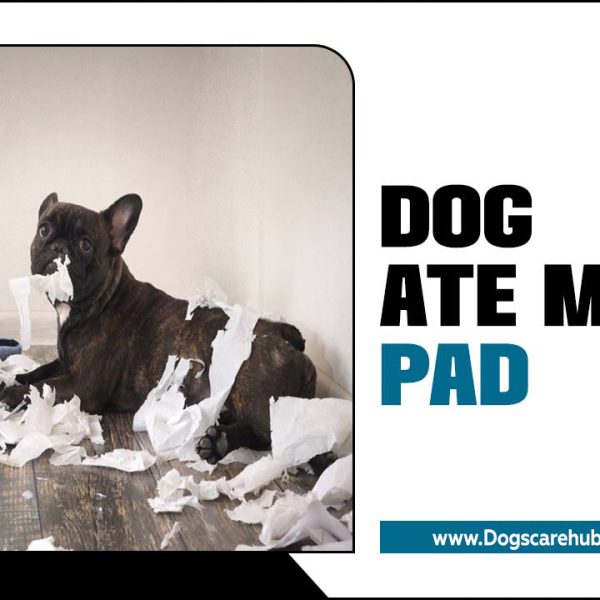Have you ever left your dog alone at home, only to hear constant barking? This behavior can be puzzling and even stressful for both you and your furry friend. Why do dogs bark when left alone? Is it a way to call for help or just a way of expressing their feelings?
Imagine your dog sitting by the window, watching you leave. Alone, they might feel scared or bored. It’s their way of saying, “I don’t want to be alone!” Dogs bark for many reasons, and understanding these can help you find solutions. Did you know that barking is a normal way for dogs to communicate? It’s how they express their needs and emotions.
In this article, we’ll explore why dogs bark when left alone and offer tips to help you and your pet cope. We will share stories, fun facts, and helpful insights. Are you ready to learn more about your barking buddy? Let’s dive in!
Why Your Dog Barks When Left Alone: Understanding Causes

Understanding Why Dogs Bark When Left Alone
Many dogs bark when left alone because they feel anxious or lonely. This behavior, known as separation anxiety, can make them vocalize their stress. Did you know that dogs might bark simply to get your attention? If a dog has learned that barking brings you running, they’ll do it more! Training methods such as providing toys or leaving calming music can help reduce their barking when you’re away. Understanding your dog’s feelings is key to a peaceful home.Common Reasons for Barking
Separation anxiety and its effects on behavior. Boredom and lack of stimulation while alone.Dogs often bark because they feel lonely or anxious without their human friends. One big reason is separation anxiety. This occurs when dogs feel scared or stressed when left alone. They might think, “Where did my human go? Did they leave me forever?” This can lead to barking, whining, or even destructive behavior.
Another reason is boredom. Dogs need mental and physical activities to stay happy. If they have nothing to do, they might bark just to entertain themselves! Imagine being stuck in a room with no games, treats, or friends. You’d probably make some noise too! Keeping your dog busy with toys and activities can help reduce this barking.
| Reason | Effect on Behavior |
|---|---|
| Separation Anxiety | Barking, whining, destruction |
| Boredom | Barking, restlessness |
Identifying Signs of Distress
Behavioral signs to look for when returning home. Understanding vocalization patterns specific to anxiety.When you return home, your furry friend may show signs of being upset. Look for behaviors like pacing, scratching at doors, or excessive barking. A wagging tail? Great! But if their barking sounds more like a sad song, they might be feeling anxious. Dogs often use their voices to tell you how they feel, especially when left alone. Watch out for these signs:
| Behavior | Meaning |
|---|---|
| Pacing | Anxiety or restlessness |
| Scratching | Desire to escape or get attention |
| Excessive barking | Stress or loneliness |
Understanding these clues can help you support your dog better. Remember, dogs don’t just bark for fun. Their vocalizations can help you crack the code of their feelings!
Training Techniques to Reduce Barking
Positive reinforcement strategies for quiet behavior. Crate training and safe spaces as calming solutions.Dogs bark for many reasons, especially when they feel alone. To help solve this, use positive reinforcement. Reward your pup with treats for quiet behavior. A wagging tail and some yummy snacks make a great team! Crate training can also be your furry friend’s new retreat. It gives them a cozy space to chill out. Just think, a nap in a crate could be as fun as a dog park. Here’s a quick look at these techniques:
| Technique | Description |
|---|---|
| Positive Reinforcement | Rewarding quiet behavior with treats. |
| Crate Training | Creating a safe, relaxing space for your dog. |
Environmental Modifications
Creating a comfortable environment for your dog. Distraction techniques: toys and background noise.Making your dog feel at home is very important. You can help by creating a cozy space for them. Use their favorite bed and blankets. This makes them feel safe.
To keep them busy, try these things:
- Toys to chew or toss
- Interactive puzzles
Adding some background noise, like soft music or a fan, can help. This can soothe them while you’re away. A friendly environment helps calm any barking.
How can I distract my dog while I’m away?
You can distract your dog by giving them toys or leaving background noise on. This keeps them busy and relaxed.
Consulting a Professional
When to seek help from a veterinarian or trainer. Understanding potential behavioral therapies available.Feeling overwhelmed by your pup’s barking? It might be time to call in the experts! If your dog barks excessively, a veterinarian or trainer can help. They know how to check for health problems or bad habits. Sometimes, a little training can work wonders. Different behavioral therapies may help your dog feel less anxious when alone. Here’s a quick comparison of some options:
| Therapy Type | Description |
|---|---|
| Behavior Modification | Teaches your dog to relax or find new activities. |
| Medication | Helps calm your dog if anxiety is too high. |
| Training Classes | In-structure lessons for dogs to learn better behavior. |
Remember, every woof has a reason! Seeking help shows how much you care for your furry friend.
Preventative Measures for Future Barking
Socialization strategies from an early age. Establishing routines that minimize anxiety.To help your dog feel less anxious when alone, start socializing them early. Take them to parks or puppy classes. Meeting new friends can make them feel like a star on a big stage! Establishing a consistent routine also helps. Dogs love knowing what to expect each day. Try this table to set a good schedule:
| Activity | Time |
|---|---|
| Walk | 8:00 AM |
| Playtime | 12:00 PM |
| Feeding | 5:00 PM |
| Quiet Time | 8:00 PM |
Following a schedule can keep your dog calm. Remember, a relaxed pup means fewer barks! So, bring out your planner, and let’s get to work on that doggie roadmap!
Conclusion
In conclusion, dog barks when left alone due to loneliness, boredom, or anxiety. Understanding your dog’s behavior helps you respond better. You can provide toys, practice short absences, or consider training. If barking continues, you might need help from a professional. Remember, knowing why your dog behaves this way makes you a better pet owner. Keep learning and caring!FAQs
What Are The Common Reasons Why Dogs Bark When Left Alone?Dogs often bark when left alone because they feel lonely or anxious. They might want to get your attention or say they are bored. Sometimes, they hear noises outside, like other animals or people, and bark to warn you. Their barking is a way of saying they miss you or need something.
How Can I Train My Dog To Reduce Barking When They Are Alone At Home?To help your dog stop barking when alone, you can try a few things. First, practice leaving your dog alone for short times. Start with just a few minutes and then slowly make it longer. Give your dog a special toy or treat to keep them busy while you’re gone. You can also reward them with treats when they stay quiet. With time and patience, your dog will learn to feel more comfortable alone.
Are There Specific Breeds That Are More Prone To Barking When Left Alone?Yes, some dog breeds are more likely to bark when they are left alone. Breeds like Beagles, Chihuahuas, and Dachshunds often bark a lot. They get lonely and want attention. If you have one of these dogs, you might want to help them feel less alone.
What Are Some Effective Strategies For Managing A Dog’S Anxiety That May Cause Barking When Alone?To help your dog not bark when alone, you can try a few things. First, give your dog a cozy space to relax. You can leave them a special toy or a blanket that smells like you. Next, make sure to practice leaving your dog alone for short times, then slowly increase it. Finally, reward them with treats when they stay calm, so they learn being alone is okay.
When Should I Consider Seeking Professional Help For My Dog’S Barking Behavior When Left By Themselves?You should think about getting help if your dog barks a lot when you leave. If the barking happens every time you’re gone, it’s a sign they might be upset. When it gets too loud or lasts for a long time, it can bother neighbors too. A trainer or vet can help your dog feel better when alone. They can teach both you and your dog ways to make it easier.
Meet Elyse Colburn, the devoted canine companion and storyteller behind the enchanting world of “Tales, Tails, and Adventures Unleashed.” A passionate dog enthusiast with a heart full of paw prints, Elyse Colburn shares heartwarming tales and insightful adventures, celebrating the joy, loyalty, and endless antics that make every dog a true hero. Join Elyse Colburn on this tail-wagging journey, where every post is a love letter to our four-legged friends.







